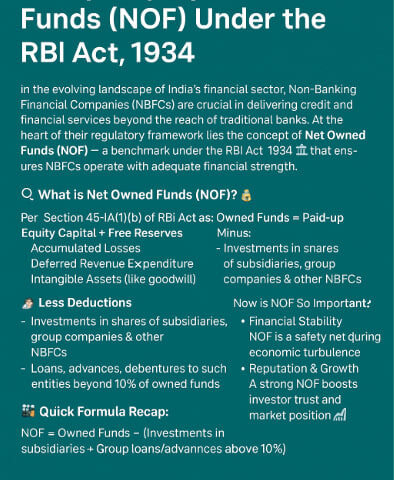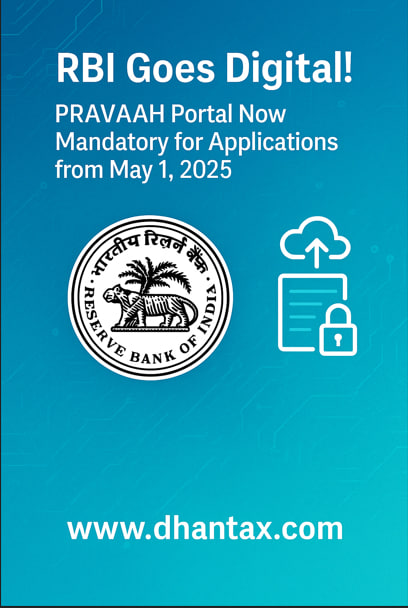Demystifying Net Owned Funds (NOF) Under the RBI Act, 1934

etSynthesys Secures Strategic Investment from Global Gaming Leader KRAFTON – Accelerating India’s Digital Entertainment Revolution!
April 19, 2025
Facing GST SPL-03 Notice? Here’s How to Draft the Perfect Reply Cover Letter under GST Amnesty Scheme 2023!
April 19, 2025💼 Demystifying Net Owned Funds (NOF) Under the RBI Act, 1934 📊
In the evolving landscape of India’s financial sector, Non-Banking Financial Companies (NBFCs) are crucial in delivering credit and financial services beyond the reach of traditional banks. 💳 At the heart of their regulatory framework lies the concept of Net Owned Funds (NOF) — a benchmark under the RBI Act, 1934 🏛️ that ensures NBFCs operate with adequate financial strength.
🔍 What is Net Owned Funds (NOF)? 💰
As per Section 45-IA(1)(b) of the RBI Act, 1934, NOF is calculated as:
1️⃣ Owned Funds = Paid-up Equity Capital + Free Reserves
❌ Minus:
-
Accumulated Losses
-
Deferred Revenue Expenditure
-
Intangible Assets (like goodwill)
2️⃣ Less Deductions:
-
Investments in shares of subsidiaries, group companies & other NBFCs
-
Loans, advances, debentures to such entities beyond 10% of owned funds
📌 This formula ensures NBFCs maintain true capital strength, not inflated by inter-group dealings.
🧠 Why Is NOF So Important?
✅ Regulatory Compliance – Essential to get or keep the Certificate of Registration (CoR) from RBI
✅ Financial Stability – NOF is a safety net during economic turbulence
✅ Reputation & Growth – A strong NOF boosts investor trust and market position 📈
📆 Timeline of NOF Requirement Changes
📍 Earlier Requirement: ₹25 Lakh
📍 Now: Many NBFCs must maintain ₹10 Crore minimum NOF, as per recent RBI circulars 🏦
This evolution reflects the RBI’s intent to strengthen the financial backbone of the NBFC ecosystem 💪
🔐 Final Thought
💡 Net Owned Funds are not just numbers; they represent the financial soul of an NBFC.
RBI’s emphasis on NOF helps ensure the sector remains credible, sustainable, and investor-friendly. Whether you’re running an NBFC or planning to register one, understanding NOF is your first step towards long-term compliance and success. 🛤️
📞 Contact Dhan tax for NBFC Advisory & Compliance Support
📱 Mobile: +91 76784 56921
📧 Email: info@dhantax.com
🌐 Website: www.dhantax.com







